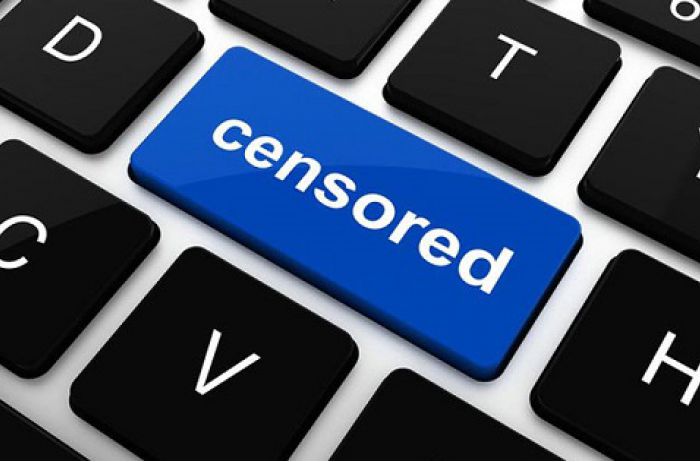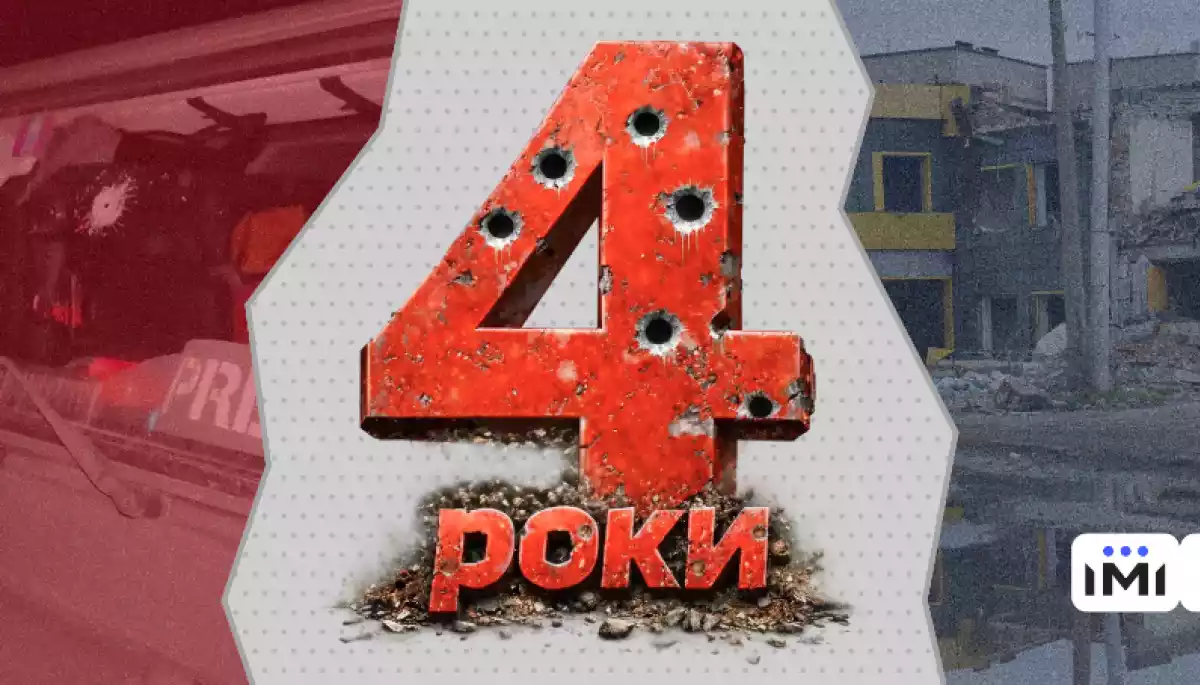
Коаліція «За вільний Інтернет» закликає депутатів не підтримувати законопроект № 9275 щодо захисту інформпростору
Коаліція «За вільний Інтернет» закликає депутатів не підтримувати законопроект № 9275 щодо захисту інформпростору


Про це йдеться у заяві Коаліції.
7 листопада 2018 року народні депутати Іван Вінник, Оксана Білозір, Олена Матузко, Тетяна Чорновол та інші зареєстрували у парламенті Проект Закону «Про внесення змін до деяких законів України щодо захисту інформаційного простору» № 9275. Документ пропонує надати Верховній Раді України виключне право виносити на розгляд РНБО пропозиції щодо застосування санкцій до засобів масової інформації, мовників, телерадіоорганізацій та інших суб'єктів інформаційної діяльності у сфері телебачення і радіомовлення, їх засновників, вигодоодержувачів, які є резидентами України.
Коаліція зауважує, що Закон України «Про санкції» допускає застосування спеціальних заходів до громадян України лише якщо вони здійснюють терористичну діяльність. Зважаючи на це, йдеться в заяві, автори законопроекту запропонували вважати елементом тероризму надання «інформаційної підтримки терористичним організаціям, незаконним збройним формуванням, іншим суб’єктам, які здійснюють, беруть участь чи сприяють терористичній діяльності, окупації території України, збройній агресії проти України». Така підтримка, йдеться в заяві, може полягати у створенні або поширенні інформації, що підтримує, пропагує, популяризує, чи позитивно їх висвітлює.
Коаліція «За вільний інтернет» вважає, що запропоновані законопроектом положення не можуть вважатися ефективним засобом протидії існуючим загрозам, і створюють для влади можливість втручатись у свободу вираження поглядів та діяльність ЗМІ.
Також Коаліція зауважує, що застосування Закону України «Про санкції» для обмеження діяльності ЗМІ суперечить статті 34 Конституції України, відповідно до якої обмеження свободи вираження поглядів має регулюватись виключно законом (не рішеннями РНБО чи Указами Президента, які вводять їх в дію).
«Надання Верховній Раді виключного права визначати щодо яких ЗМІ можуть застосовуватись санкції не лише продовжить практику незаконного блокування та припинення діяльності медіа, але й створить реальні загрози політичної цензури та тиску на ЗМІ під час виборчого процесу. Зазначений законопроект не містить процедури та чітких критеріїв оцінки, які медіа можуть підлягати санкціям. Пропоноване визначення "інформаційної підтримки" тероризму допускає свавільне тлумачення, за якого будь-яка згадка незаконних формувань у ЗМІ, може вважатися їх популяризацією та прирівнюватись до терористочної діяльності. Таким чином, народні депутати отримають практично необмежене право втручатися у діяльність ЗМІ, ґрунтуючись лише на власній політичній волі», – йдеться в заяві.
Коаліція зауважує, що українське законодавство вже передбачає законні механізми реагування на заклики до насильницької зміни конституційного ладу України, пропаганди війни, дискримінації чи іншого незаконного контенту в українських засобах масової інформації, визначені, зокрема, Кримінальним кодексом України та Законом України «Про телебачення і радіомовлення».
Коаліція «За вільний Інтернет» зазначає, що для обмеження незаконного контенту в мережі інтернет мають бути розроблені інші, судові, механізми, які відповідатимуть міжнародним стандартам захисту прав людини.
«Зокрема, відповідно до Рекомендацій Ради Європи №CM/Rec (2016) 5 щодо Інтернет-свободи, обмеження мають грунтуватися на рішенні суду або іншого незалежного адміністративного органу із подальшим його затвердженням у судовому порядку. При цьому, рішення має бути конкретним, спрямованим на досягнення чіткої мети та ґрунтуватися на оцінці ефективності обмежень і ризиків надмірного блокування»», – йдеться в заяві
З огляду на вищезазначене Коаліція «За вільний Інтернет» закликає ініціаторів проекту відкликати Проект Закону «Про внесення змін до деяких законів України щодо захисту інформаційного простору» № 9275; а народних депутатів – не підтримувати його та керуватись під час реалізації політики в сфері інформаційної безпеки принципами верховенства права і законності, не допускаючи звуження прав людини без дотримання вимог міжнародного права та національного законодавства.
Учасники Коаліції «За вільний Інтернет»:
ГО «Платформа прав людини»
ГО «Лабораторія цифрової безпеки»
ГО «Центр інформації про права людини»
ГО «Кримська правозахисна група»
Представництво Freedom House в Україні
Микола Костинян
Громадські організації-підписанти:
Академія української преси
Центр громадянських свобод
ГО “Інститут масової інформації”
ГО “Донецький інститут інформації”
ГО «Детектор медіа»
Додаємо текст заяви англійською мовою:
Statement
of FreeNet Ukraine Coalition and non-governmental organizations
on the draft law # 9275 “On Amending Certain Laws of Ukraine on the Protection of Information Space”
FreeNet Ukraine Coalition condemns the latest attempt to introduce censorship in Ukraine under the pretence of countering Russian propaganda.
On 7 November 2018, a number of Members of Parliament, including Ivan Vynnyk, Oksana Bilozir, Olena Matuzko, Tetiana Chornovol and others registered a draft law # 9275 “On Amending Certain Laws of Ukraine on the Protection of Information Space” in the Parliament. The draft law suggests granting the Verkhovna Rada of Ukraine the unique authority to submit the proposals to the National Security and Defence Council of Ukraine on applying sanctions against mass media outlets, broadcasters, TV and radio organizations and other information agents in the sector of TV and radio broadcasting, their founders and beneficiaries who are residents of Ukraine.
It should be noted that the Law of Ukraine “On Sanctions” only allow for applying sanctions against the citizens of Ukraine if they conduct terrorist activities. Thus, the authors of a draft law suggested considering “information support to the terrorist organizations, illegal armed formations and other actors that conduct, take part or contribute to the terrorist activities, occupation of the territory of Ukraine, armed aggression against Ukraine” an element of terrorism. This support may entail creating or disseminating information that promotes, commends or positively covers such actors.
While condemning any manifestations of terrorism, FreeNet Ukraine Coalition believes that the provisions initiated by the draft law cannot be considered an effective tool to counter current threats and, unfortunately, create yet another opportunity for the authorities to arbitrarily and illegally interfere with the freedom of expression and media activities (including Internet-based media). That is especially critical given the coming elections.
Applying the Law “On Sanctions” to restrict media activities is in contradiction with Article 34 of the Constitution of Ukraine that provides that the restriction of the freedom of expression may only be regulated by law rather than the NSDC decisions or Decrees of the President of Ukraine that enact such decisions. Moreover, according to the principle of legality, the restrictions should be clear enough to enable foreseeing the consequences that a certain action can yield. A quality law should provide adequate protection from uncontrolled actions and clearly determine its application and scope of powers granted to the state authorities with regards to imposing restrictions.
Authorizing the Verkhovna Rada of Ukraine to exclusively identify mass media outlets to apply the sanctions against not only will extend the practice of illegal banning and terminating the activities of media but also will create real threats of political censorship and pressure on mass media during the electoral campaign. This draft law does not establish a procedure and clear assessment criteria to decide which media outlets should be subject to sanctions. The suggested definition of “information support” allows for arbitrary interpretation - for example, any mention of the illegal formations in mass media may be plotted as if a media outlet promotes the illegal formations and thus amount to terrorist activities. Therefore, the MPs will be virtually granted an unlimited right to interfere with mass media if they simply want to.
The Coalition also notes that the effective Ukrainian law has already established legal mechanisms to react to the calls for violent changes of the constitutional system of Ukraine, promotion of war, discrimination or other illegal content in Ukrainian mass media. In particular, such mechanisms are set forth by the Criminal Code of Ukraine and the Law of Ukraine “On Television and Radio Broadcasting.”
When it comes to restricting illegal content on the Internet, the different court mechanisms should be developed in compliance with international human rights standards. For example, according to Recommendation CM/Rec(2016)5 on Internet freedom, the restrictions should be based on a decision by a court or an independent administrative body that is subject to judicial review. The decision should be specific, targeted and based on the evaluation of efficiency of restrictions and risks of excessive banning.
Given the above, FreeNet Coalition calls:
Initiators of a draft law - to revoke the draft law # 9275 “On Amending Certain Laws of Ukraine on the Protection of Information Space;”
Members of Parliament:
-
not to support the draft law # 9275 “On Amending Certain Laws of Ukraine on the Protection of Information Space;”
-
in implementing the policy in the area of information security, to be guided by the principles of legality and rule of law, do not allow for restricting human rights without complying with the provisions of international law and national law.
Members of FreeNet Ukraine Coalition:
Human Rights Platform
Digital Security Lab Ukraine
Human Rights Information Centre
Crimean Human Rights Group
Freedom House in Ukraine
Mykola Kostynyan
NGO signatories:
Academy of Ukrainian Press
Center for Civil Liberties
Institute of Mass Information
Donetsk Institute of Information
Detector Media
NGO Information Security
National Union of Journalists of Ukraine











